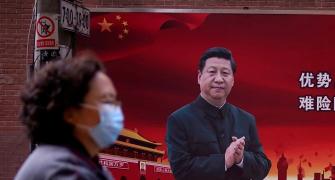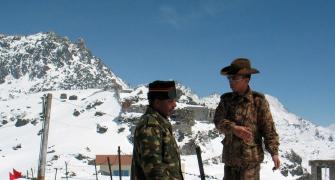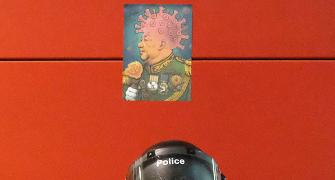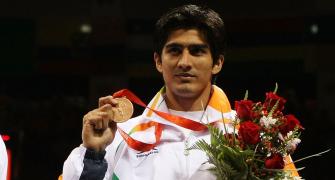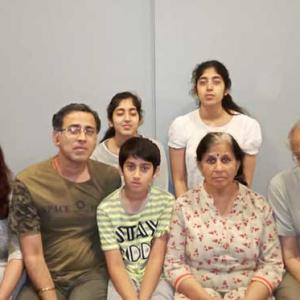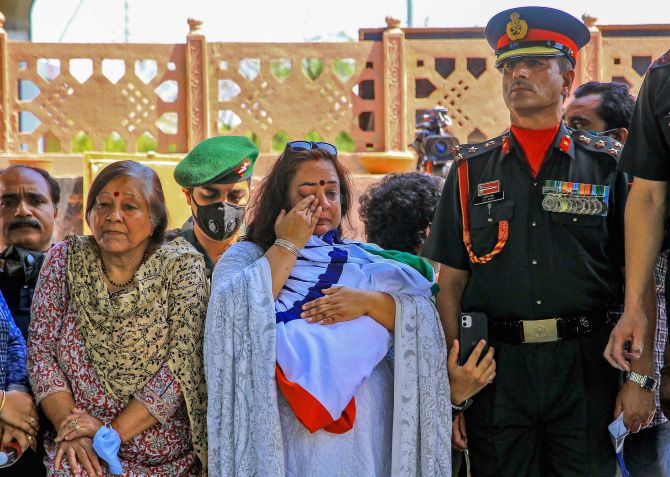'Terrorism continues to be the overwhelming threat to security and stability in the SCO region and therefore Dr Jaishankar strongly pitched for 'collective action',' observes Dr Rajaram Panda.
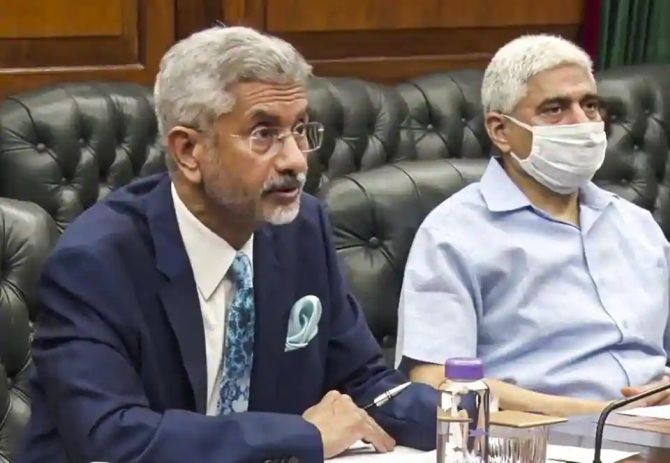
India's weight in the eight-member China-dominated influential bloc focusing on political security-related issues, the Shanghai Cooperation Organisation since it along with Pakistan were admitted as full members in 2017 has been more relevant now than when the organisation came into existence.
Since joining the SCO bloc, India has made constructive contributions to the organisation. In the present difficult times when the world is battling the coronavirus, it is always useful if regional and international organisations coalesce to discuss and seek a long-term solution to this global challenge.
India was an observer at the SCO since 2005 and generally participated in the ministerial-level meetings of the grouping which focus mainly on security and economic cooperation in the Eurasian region.
The SCO was founded at a summit in Shanghai in 2001 by the presidents of Russia, China, Kyrgyz Republic, Kazakhstan, Tajikistan and Uzbekistan.
With this in view, External Affairs Minister Dr S Jaishankar took part in an extraordinary meeting, the first-ever virtual conference, of the SCO foreign ninisters on May 13.
It was chaired by Russian Foreign Minister Sergey Lavrov and attended by his counterparts from all SCO countries including China's Wang Yi and Pakistan's Shah Mehmood Qureshi.
Dr Jaishankar emphasised on cooperation to fight the deadly COVID-19 including sharing of best practices.
What transpired during the discussion is that the foreign ministers underlined the importance of sharing of information on best practices on containing COVID-19, particularly in the medicine, medical equipment, and pharmaceutical sector.
They agreed on a joint declaration that focused on creating a plan of action that could be adopted at an SCO leaders level summit on collaboration for vaccine development and methods of disease treatment.
Dr Jaishankar expressed India's readiness to share information, expertise and best practices to SCO member States.
The minister also highlighted the initiatives and various decisive steps taken by the Narendra Damodaras Modi government in the wake of the pandemic, including the Rs 20 lakh crore ($266 billion) stimulus package to stimulate economic growth.
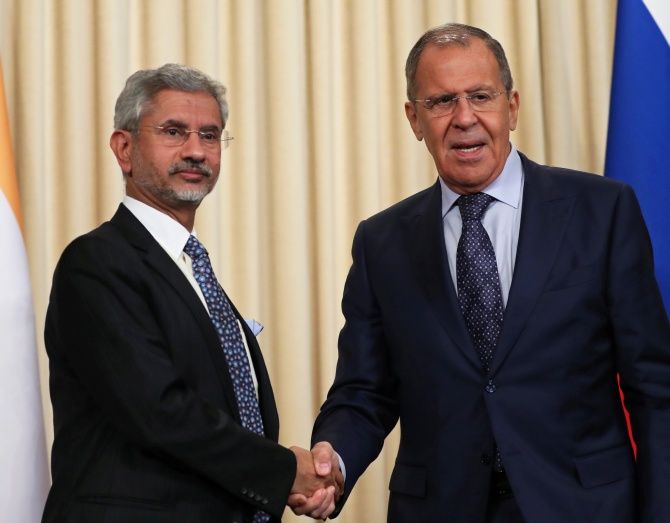
The meeting of the SCO foreign ministers took place days after a BRICS foreign ministers video-conference and discussions in late April centred around the crisis and its impact and the BRICS response.
A subsequent virtual meeting of BRICS health ministers on May 7 took the discussion forward in a focussed and purposeful manner.
The proposal of setting up a BRICS Vaccine Research and Development Centre that was initiated at the BRICS summit in Johannesburg in July 2018 was taken further by the BRICS foreign ministers meeting the BRICS New Development Bank allotting up to $15 billion for loans to BRICS States to boost their economies.
The decision to set up a $15 billion loan instrument was to finance projects for the economic rebuilding of BRICS countries due to the crisis. The decision at the SCO foreign affairs ministers meeting was an extension of such initiative.
This was the first time that the foreign ministers of India and Pakistan were together at a virtual meeting on COVID-19.
While the NAM video conference saw the participation of Prime Minister Modi and Pakistan President Arif Alvi, the SAARC video conference saw Modi, but Pakistan was represented by a junior official.
As an organisation, the SCO covers three-fifths of the Eurasian continent and nearly half of the human population.
With three major economies as part of the grouping, the meeting focussed on containing the spread of the coronavirus.
This meeting took place within two days of the US-led seven nation meeting that included India on containing COVID-19 and economic recovery.
Dr Jaishankar remarked that the crisis has resulted in disruption of production networks and supply chains reverberating across the globe.
It is pertinent therefore for SCO member States to jointly identify and sustain new means of economic growth.
Besides ways to combat COVID-19 and find common ground to cooperate, Dr Jaishankar underlined that the security challenges the world face today are not linked by physical or political boundaries.
Terrorism continues to be the overwhelming threat to security and stability in the SCO region and therefore Dr Jaishankar strongly pitched for 'collective action'. The minister also underscored the need for SCO to work towards economic revival.
Russian Foreign Minister Sergey Lavrov, who convened the meeting, called for strengthening the SCO's anti-terror mandate and security mechanism.
As is the wont of Pakistan, its foreign minister pushed back against India, saying terrorism-related allegations must not be used as a political tool to malign and victimise any country or religion.
The SCO is scheduled to hold its next summit in St Petersburg in July.
The conference also extensively deliberated on the evolving situation in Afghanistan, holding that the peace process must take into consideration the aspirations of the Afghan people and stakes of the neighbouring countries.
India is keen on deepening its security-related cooperation with the SCO and its Regional Anti-Terrorism Structure which specifically deals with issues relating to security and defence.
Dr Rajaram Panda, former Senior Fellow at IDSA, was until recently ICCR India Chair at Reitaku University, Japan.
He is currently Lok Sabha Research Fellow, Parliament of India, and Member of Governing Council, Indian Council of World Affairs, New Delhi.

